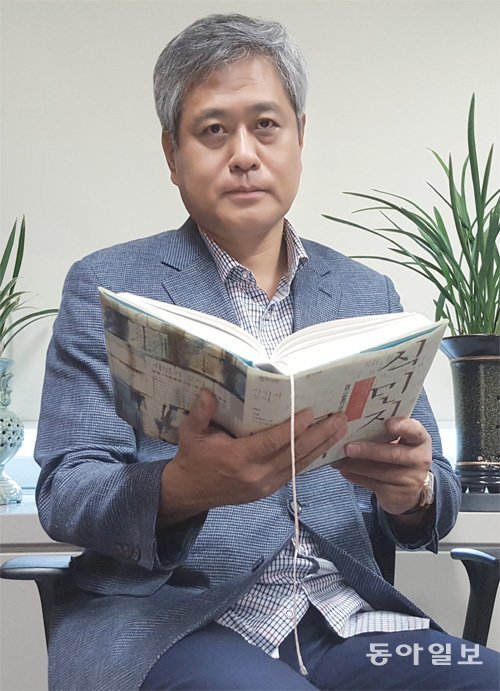‘Read between the lines of modern Korean literature,’ says a scholar
‘Read between the lines of modern Korean literature,’ says a scholar
Posted July. 11, 2019 07:31,
Updated July. 11, 2019 07:31

Professor Han Ki-hyung, the head of the Academy of East Asian Studies at Sungkyunkwan University, has been working on understanding the modernity of Korean colonialism. While seeking an answer to the question “why is modern Korean literature considered bland?” he particularly concentrated on the impact of Japanese censorship on modern Korean literature. While studying this subject, his question changed to “Can modern Korean literature be considered bland?” Professor Han recently published a book titled the “History of Korean Colonial Literature.”
“Though Japanese censorship may appear as a familiar subject, it has not been thoroughly researched on how it has specifically impacted and damaged Korean literature,” Professor Han told this reporter Monday at his office.
During Japanese imperial rule over Korea, Japan adopted its own systems in Korea, but there were several that were run twofold, particularly laws on media and publication. “Japanese people were subject to post-censorship, while Koreans suffered from pre-censorship,” Professor Han said. “Such discrimination caused profound differences in the freedom of expression and possibilities.”
Japanese writers were permitted to create and publish documents on socialism or pornographic materials because even confiscated books could be distributed in the underground market. On the contrary, Korean writers could not even print out any material, whose contents were forbidden by the authorities.
Professor Han, known for his studies on the impact of state power and market on literature, attempted to render a new interpretation on Korean modernity, shedding light on the achievements and efforts of modern Korean authors to overcome Japanese censorship. “In Korean modern literature, there are several fields that are still unknown, including local epic narratives, the mainstream of modern colonial literature,” explained Han.
Korean publications were sieged by Japanese media. Of the top 30 publications sold during in the colonial era, only four, including Dong-A Ilbo, were Korean media. Professor Han stressed that the texts should be scrutinized in light of the extreme pressure the authors and journalists faced at that time. “Korean modernity had been analyzed in the context of English literature theory, post-modernism and even imperialism,” he said. “But it should be interpreted by standards and aesthetic theory based on Korean’s unique historical experience.”
Jong-Yeob JO jjj@donga.com
Headline News
- Med professors announce intention to leave hospitals starting Thursday
- Bridge honoring Sgt. Moon Jae-sik unveiled in Pennsylvania
- Chief of Staff Chung tells presidential secretaries to stay away from politics
- US FTC bans noncompete agreements
- N. Korea launches cyberattacks on S. Korea's defense companies







